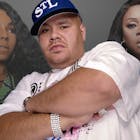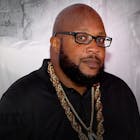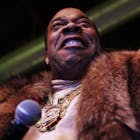
30 Years Of Diamond D
Diamond D Reflects On 30 Years of Consistency and Classics
Published Thu, September 22, 2022 at 12:00 PM EDT
The Bronx superproducer/rapper just dropped his new album, The Rear View, which features Posdnous of De La Soul, Westside Gunn of Griselda, Ashtin Martin, Stacy Epps and KP. The project took about two months to record between New York, L.A., and Atlanta, with engineers Believe and Amond Jackson; it arrives just as his classic debut album Stunts, Blunts and Hip-Hop turns 30. With decades of history on his resume, and as inspired and vital as ever when it comes to this art, Diamond D is in a very good musical place. He spoke to ROCK THE BELLS about how he got here; taking time to show love to those artists who inspired him.
"My influences on production were Marley Marl, of course, the great—[and] the 45 King," says D. "Jazzy Jay—he's the one who put me on and taught me production; and Prince Paul—those were my heroes. I was a DJ, but I listened to all of their productions. At the time, I didn't own a sampler. But those were the legends I looked up to."
One thing about Diamond D that's evident in any conversation, he's a fan of many of his peers. In the hyper-competitive music industry, some mute their praise of their contemporaries. But D is secure in his greatness, and his respect he gives is parallel to the respect he gets, across-the-board. His love started as a deejay, and he believes two turntables to be the foundation. And, as he points out, it's evident in the trajectories of some of our most celebrated producers.
"I think that all prolific producers were once DJs. Dr. Dre, Just Blaze, Timbaland, myself," he says. "I just think the art of timing, blending in—it's similar to production. But with producing, you don't have two turntables. You learn how to stack tracks on top of each other, but it's the same principle: timing and blending. It all ties in. [Many] producers were all DJs. So that's an important aspect of it."
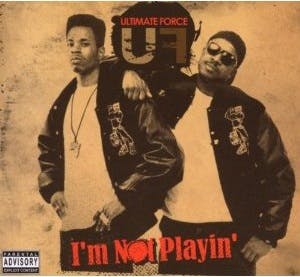
"I was in a group called the Ultimate Force. And we were signed to Strong City Records/MCA. I was the deejay in the group. Also around that time, I was producing an artist named Lord Finesse. His first album, Funky Technician, I was producing that along with DJ Premier and Showbiz. That was around the time that I made the transition to become a producer from a deejay. It was a natural progression. Once you learn the art of production, the art of sequencing, all of that comes into play.
"[As far as] me wanting to be an emcee," D continues. "I was around Lord Finesse a lot, and I was also around Grand Puba Maxwell, who was signed to Strong City Records,...prior to Brand Nubian. He was in a group called The Masters Of Ceremony. We would all be in the studio. Just being around...those two in particular, Lord Finesse and Grand Puba, made me wanna pick up the pen myself."

Lord Finesse and Grand Puba, made me wanna pick up the pen myself..."
- Diamond D on deciding to become an emcee
"What confirmed it for me was...I had a little bit of time left over [in a session] and I recorded 'Best Kept Secret,'" says D. "I was producing an artist named Joe Control out of The Bronx. He had a demo deal with Chemistry Records at the time."
Diamond D was an ambitious producer when his work for Control led to an opportunity.
"What happened was, we were called down the label for a meeting. I'm thinking I'm going in there to sell these beats. That's all I lived for--just to produce. And when I get down there—I had rhymed on one of the demos—and the A&R there named Brian Chen, formerly of Priority Records. [He] said 'yo we like what you're doing and we want to offer you a deal.' And I'm sitting there like 'I'm here for my man right here.'"
"It was just a fluke," D explains. "I recorded 'Best Kept Secret' with leftover time in the studio. I'm a lab rat, basically. So I used up all my time. That's what led to me creating Stunts, Blunts and Hip-Hop and...getting signed over there."
DROP YOUR EMAIL
TO STAY IN THE KNOW

It was just a fluke. I recorded 'Best Kept Secret' with leftover time in the studio..."
- Diamond D on the making of STUNTS, BLUNTS AND HIP-HOP
"It wasn't no pressure. Because I was going into [an] uncharted area. I was confident, but there were no producer/MCs. Of course, when you're making an album, you never know if it's gonna be a classic or a flop. But, basically, I was just recording songs that I liked. As a producer, you always set aside a certain pile of records and you say to yourself 'if I ever get a situation for myself, I'm gonna fuck with these records.' That's what happened. But I was confident. If Lord Finesse and Grand Puba liked it, I knew I had something special. There wasn't really any pressure. It was just [me] trying to create the best music I could at that time."
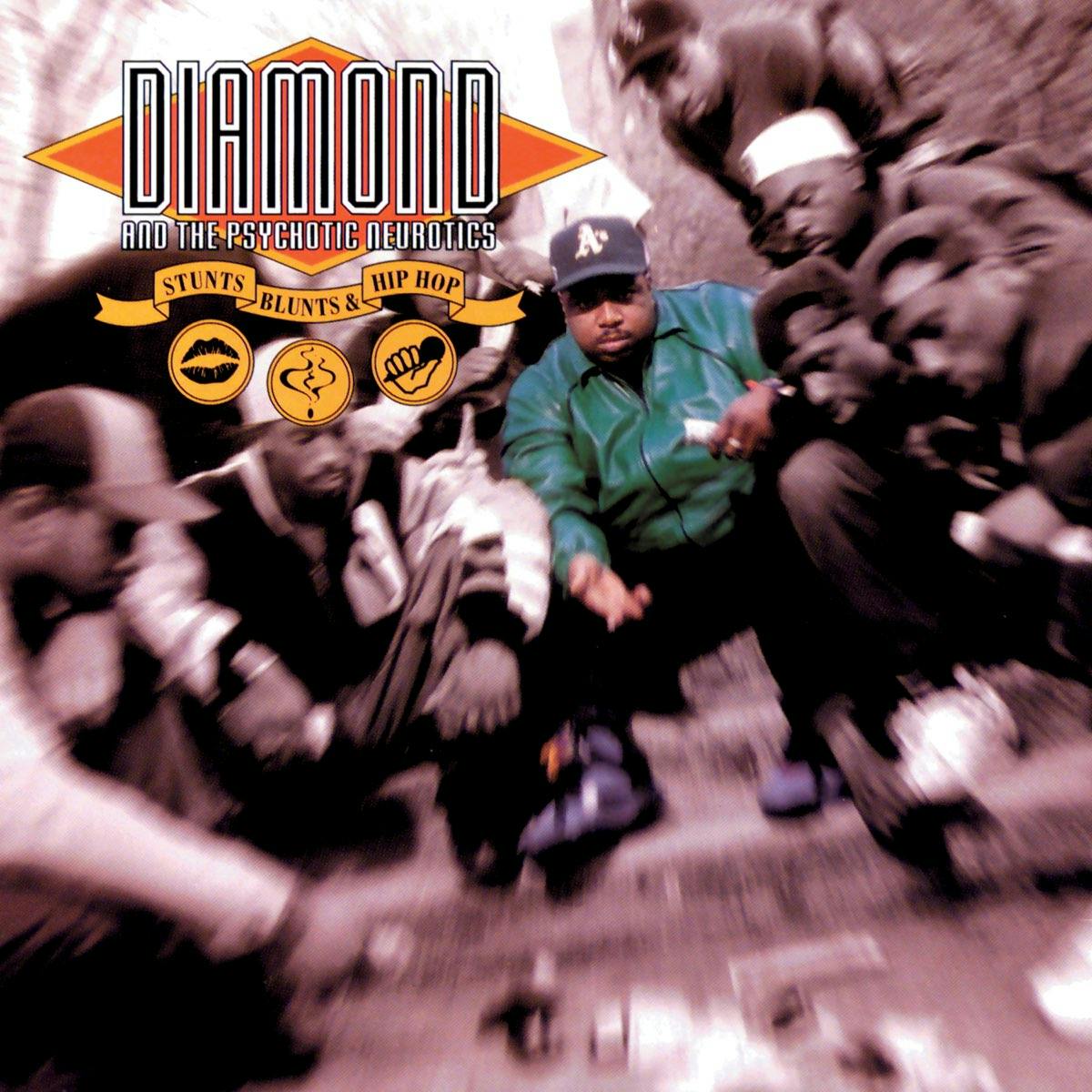
Stunts, Blunts And Hip-Hop would be released on September 22, 1992, and the album launched Diamond D into the upper echelon of Hip-Hop artists and producers. Singles like "Best Kept Secret" and "Sally Got A One Track Mind" put D and his crew, the Psychotic Neurotics on the radar of major labels and artists across the industry. He wouldn't follow it up for five years, as D became embroiled in a label battle. But during that time, he became one of the most in-demand producers in music. Diamond D would helm hits for everyone from Brand Nubian ("Punks Jump Up To Get Beat Down") to the Fugees ("The Score".)
"Versatility is the thing," D says. "If you're only one-sided, you're going to be limited. What I did with Brand Nubian is different from what I did for Queen Latifah and Sisqo and different from what I'd do with the Fugees or KRS-One. Every artist has their own sound and their own direction. If. you're a good producer, it's your job to bring that out of them musically. You can't be close-minded. And you can't have th emindset that it's gonna be my way or the highway. Most of my productions were actually collaborations. I just try to take their dieas and transfer it musically onto the song.
The Rear View finds Diamond D in rare form. The legend is inspired and focused throughout the project, which offers some of his most soulful productions to date, as he incorporated a wealth of live instrumentation on the album. And he tapped some stellar collaborators for guest appearances.
"I'm super, super proud of that album. I got Westside Gunn on there. I always like to work with new artists, I'm always thinking forward. But I also got something classic on there: I got Posdnous from De La Soul. The album is incredible."
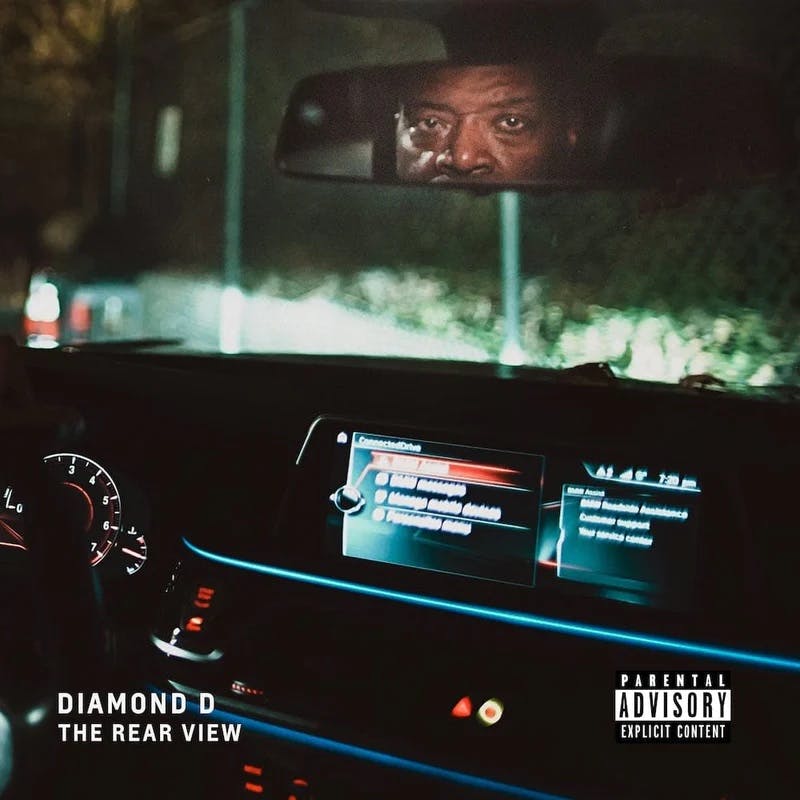
"My process now?" he pauses. "I don't force anything. If it doesn't feel good musically or sonically, I just trash it. The beauty of being independent, and I've been on a few major labels, but the beauty of being independent is you have the final say. You don't have to dance with an A&R at a label. You basically have your own direction and you can take your time with it."
"That's what I learned from Dr. Dre when I sat with Dre in his house," shares Diamond D. "The whole creative process, you don't have to rush it. The songs that feel good to you, they'll make the cut. The ones that don't? Let 'em go by the wayside."
